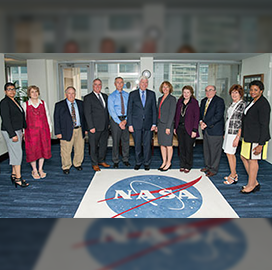
NASA's Aerospace Safety Advisory Panel has released its report on the space agency's efforts to promote safety across 2019 activities.
The 2019 ASAP report focused on efforts to qualify systems for the agency's space exploration and Commercial Crew Program activities, NASA said Wednesday.
ASAP assessed a wide range of NASA activities such as those concerning the International Space Station, aeronautical operations, safety culture and the Artemis program that aims to revive manned space exploration.
“The panel noted considerable headway toward NASA’s human exploration objectives in 2019,” said Patricia Sanders, who chairs ASAP.
The report builds on assessments, quarterly meetings, visits, direct operational observations and input from NASA personnel.
“We are supportive of the significant amount of testing – both completed and underway – as well as the thoroughness of ongoing work to resolve technical issues," Sanders added.





